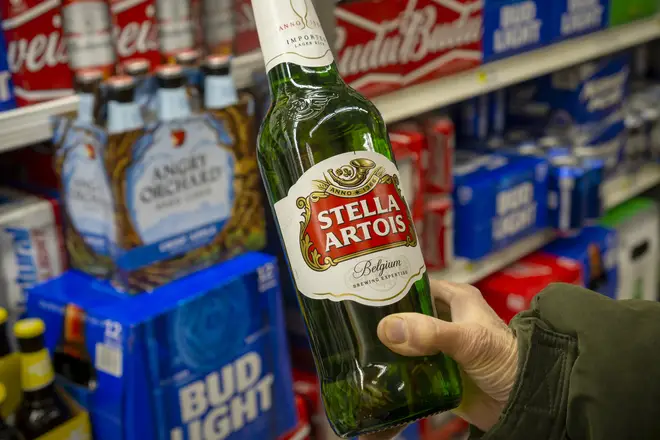
Paul Brand 10am - 12pm
18 November 2020, 15:57

A majority of adults want to see cancer warnings on alcohol packaging, a new poll suggests, after a surge in those turning to drink during lockdown.
Two in three people feel the current “drink responsibly” message on bottles is too vague and should be replaced with specific health warnings, specialists at the Priory Group addiction and mental health service found.
In a poll of 1,000 adults for Alcohol Awareness Week, 59 per cent said beverages should display a cancer warning and eight in ten feel the UK “has a problem” with binge drinking.
Official figures reveal a spike in people drinking excessively during the spring national lockdown, up from 4.8 million in February to 8.4m in June.
Priory consultant psychiatrist Dr Paul McLaren said: “Now is the time for us as a nation to re-address our relationship with alcohol. The public is demonstrating absolute common sense by calling for stronger warnings about the health risks and the Government should take note that such a move would be widely welcomed.

Public health expert: Government is "a bit like a one-trick pony" on Covid
“Covid-19 and isolation has changed millions of people’s drinking habits and we need to address this now, and recalibrate. If you are going to drink, you should educate yourself about all the risks – to your mental health, as alcohol is a depressant, and physical health.”
As England enters its third week of the second shutdown, experts have warned of a shadow pandemic of mental illness during the coronavirus crisis. It has fuelled concerns the cost of lockdowns may outweigh the benefit.
Figures from Public Health England (PHE) show older age groups significantly increased their alcohol intake during the spring UK lockdown, especially those aged 35 to 54. Only those aged 18 to 34 were more likely to report consuming less alcohol than before lockdown.
The Royal College of Psychiatrists has warned many addiction services will struggle to treat the "huge numbers" of high-risk drinkers after being "starved of funding" for years.

Caller with terminal cancer cries on LBC while seeking life insurance advice
Dr Syed Omair Ahmed, a Priory psychiatrist, said: “We are seeing more people above the age of 65 resorting to alcohol. The causes are manifold including boredom, isolation, fear, lack of family contact, and lack of outdoor activities.
“Not seeing a GP out of fear of Covid-19 means that physical health conditions are not being optimally addressed, and this can lead to increased drinking as a coping mechanism for pain or pre-existing mental health issues.”
A report by Alcohol Health Alliance UK in August found 71 per cent of beverage labels did not include the NHS low-risk drinking limit of 14 units a week, while one in four displayed the wrong advice.
Drinking increases the risk of cancers of the mouth, throat, colon and breast, stroke, heart disease, liver disease, brain damage, and damage to the nervous system.
According to Alcohol Change, alcohol causes around 11,900 cases of cancer per year in the UK.
- 10 units: A single bottle of red, white or rosé wine (ABV 12.5%)
- 6 units (NHS binge drinking definition in a single session for women): Two pints of 5% strength beer or two large (250ml) glasses of 12% wine
- 8 units (NHS binge drinking definition in a single session for men): Five bottles (330ml) of 5% strength beer or 5 small (125ml) glasses of 13% wine